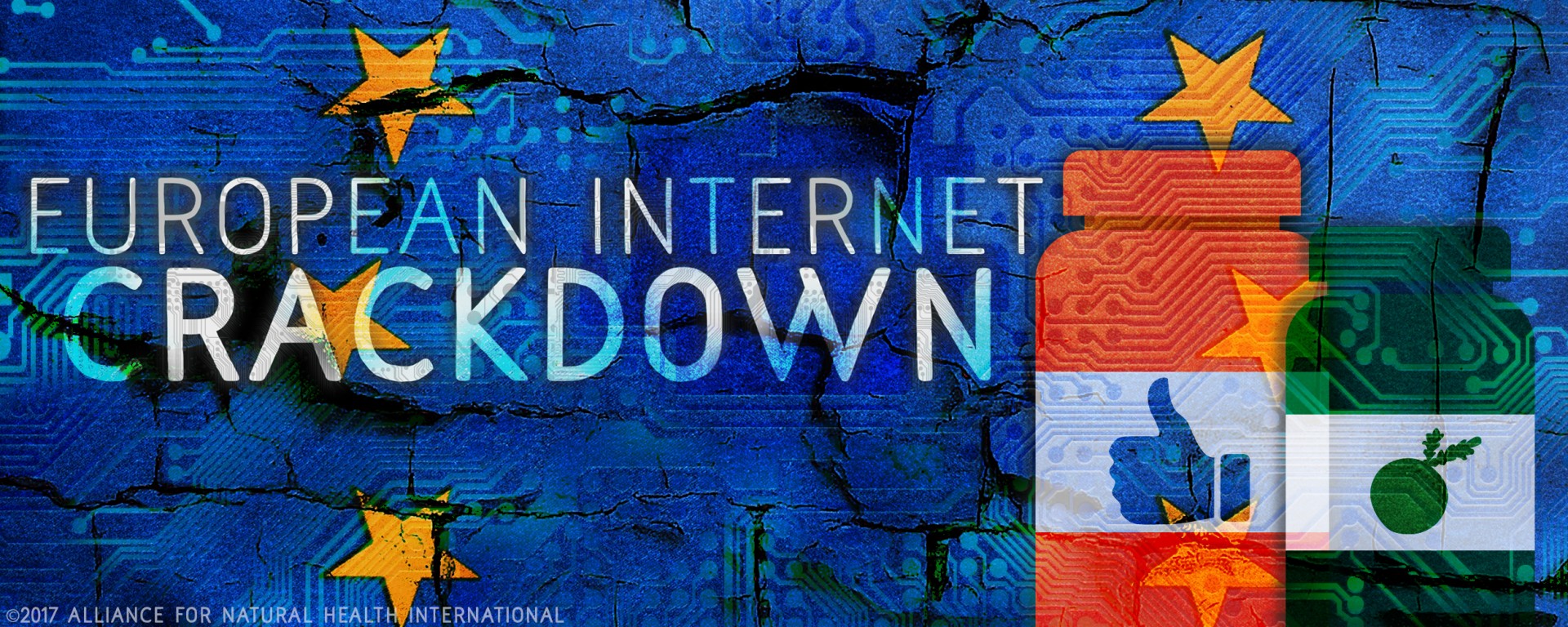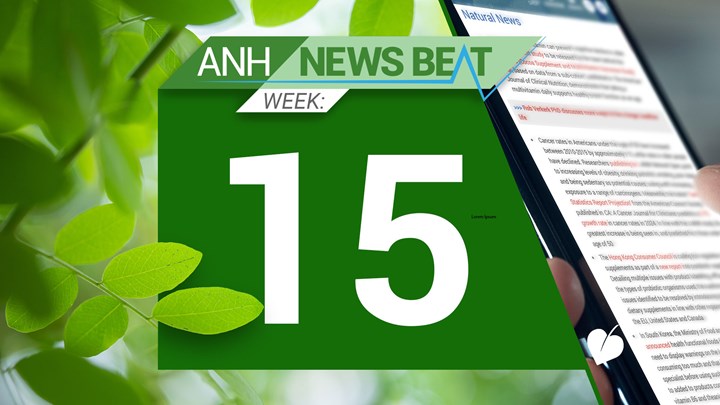Content Sections
The internet has frequently been compared with America’s Wild West. When it comes to sales over the Internet, or e-commerce, the comparison stems from the notion that anything goes. That might be from the best deals you can find anywhere that undercut anything on offer from conventional retail outlets, through to dubious or knock-off products. Then, of course, there’s all manner of advertising, from that which is perfectly accurate, responsible and able to be substantiated scientifically or otherwise, through to blatantly false or misleading.
The vast majority of Internet buyers know this – seemingly being prepared to accept the risks of the Wild West, a risk that’s often seen as an acceptable trade-off against the freedom the Internet offers in an otherwise increasingly regulated world.
For those reliant on natural health products, particularly ones that have been exorcised from EU markets by zealous regulators following both national and EU rules and regulations, the Internet has often been a saviour. Sometimes literally, in the life-saving sense.
The European Commission has been developing plans on how it’s going to regulate food-ag businesses – and is proposing a number of measures over the coming years to ensure tighter enforcement of EU regulations on the cyber-market.
Part of this process is the draft recommendation targeting food supplements. Could this recommendation restrict EU citizen’s access to important natural health products. We are definitely concerned it might.

The recommendation is designed to create a more cooperative approach between national authorities in the EU. But however well-intentioned it might be in its efforts to crack down on cowboy operators’ and those selling endangered species of herbs, ANH-Intl founder and executive director Rob Verkerk, suggested that “This draft recommendation from the Commission looks a lot more like it’s about Big Pharma and Big Food protection rather than consumer or endangered species protection”.
Accordingly, we’re in the process of taking our concerns to the Commission and to Members of the European Parliament.
Devil in the detail
There are a few givens: Internet sales are notoriously difficult to regulate, there’s a much higher proportion of cowboy operators selling on the Internet than through brick and mortar retail outlets, and some species of herbs are genuinely threatened by over-exploitation of wild herbs and insufficient sustainable cultivation of those species.
That makes a concerted effort to tidy up these problem areas justified. The Commission’s proposal involves a control period, expected from September through November 2017, when EU member states, on a voluntary basis, will collect and evaluate information on non-compliance with EU laws, misleading advertising and other information pertaining to food supplements. Dipping its toes in the water, the Commission has agreed, based on stakeholder concerns, to focus initially on 4 ingredients, all regarded as novel foods.
These are: agmatine, Acacia rigidula (blackbrush acacia), Epimedium grandiflorum (horny goat weed) and Hoodia gordonii, the southern African cactus that’s become a hit as an appetite suppressant.
Given that each one of these ingredients or herbs are of interest to Pharma companies, either as drugs or because they compete with existing drugs, it’s more than likely the stakeholders that have aided the selection of the 4 initial ingredients are related to Big Pharma itself.
The 4 target ingredients of Big Pharma interest
Let’s briefly look at each in turn.
Agmatine is a metabolite of the essential amino acid arginine and is a neurotransmitter and neuro-modulator. It occurs naturally in tiny amounts in a range of foods, especially fermented foods, but the synthetic variant that is targeted by the EC recommendation is being used particularly in pre-workout supplements in sports nutrition as it helps create focus. It is however, being intensively researched as a drug to combat depression, but it also has great potential as a treatment for a wide range of neurological diseases including Alzheimer’s and Parkinsons.
Acacia rigidula is a natural source of PEA (phenylethylamine). The US FDA has already identified it as a ‘new dietary ingredient’ which, like the EU novel food regime, makes such products off-limits to smaller businesses and gives Big Pharma and Big Food rights to use it as they are big enough to wear the costs of getting eligibility to these ring-fenced regimes.
Epimedium grandiflorum – horny goat weed – is the natural Viagra alternative. Since Pfizer’s Viagra lost patent protection, there is very strong interest in natural alternatives – and not just by Pfizer.
Southern Africa’s Hoodia gordonii is of course doing very well around the world as an appetite suppressant to aid weight loss. People, it seems are keen on gaining the same benefits that Kalahari bushmen have derived over thousands of years on staving their appetite on long hunting trips. That means it has a growing (no pun intended) market – with close to 40% of the global population being either overweight or obese.
In terms of endangered species, Hoodia gordonii is listed on Appendix II of the CITES database, but no quotas have yet been set. There is illegal wild harvesting as well as cultivation in South Africa, Namibia and other southern African countries. There is a definite requirement for sustainable approaches to cultivation and harvest – but that can be said of a very wide variety of region-specific herbs used for health purposes.
Slippery slope
The take-home here is that novel food regulation is being used a barrier to trade and to freedom of choice. The two big obstacles for food supplements in the EU are being classified as an unlicensed medicine, simply because the product is therapeutically active, or it being classified as an unauthorised novel food.
There is a sense that this recommendation is about protecting citizens’ health or endangered species, but the efforts that contribute to its implementation could well be diverted — inappropriately — to protecting big business.
Advocacy
We are currently working to make sure this isn’t another piece of EU soft law that gets diverted by business interests for their own benefit. We will keep you appraised of developments.








Comments
your voice counts
20 July 2017 at 11:50 am
Yes regulations masking as protection 'capture' and ringfence corporate hegemony.
The top down narrative (legally and corporately embodies) is the sucking uo - and evaporation of true wealth, health, shared resource and consciousness by which to notice and change a falsely framed choice for a true choice.
The rediscovery of the life-supporting function of micro-organic bio-diversity of relations in our soil, our living environment and our body, gut and brain is of a different Life than the model of 'externally' (as if) imposed 'control' that operates the consolidation of 'power' in a 'unipolar' dictate of 'power for its own sake' as fantasy gratifications played over the denying and depriving of Life in various modes of systemically induced scarcity or 'regulatory control'. This fantasy of 'power' that feeds a masked personal agenda has been in our template foundation - as the basis of a sense of segregative consciousness of split functions - for one is the fear of loss of self and life (in the terms believed as a private possession of such) and the other is the masquerade in fantasies of victory supported by the use of victimhood as a manipulative device to justify 'use of power' over whatever symptomology is used as the cause of a blaming displacement from what lies beneath such appearances.
So in my own terms I see a mass suicide - that could also be seen as a genocide - under the masking of forms of 'power' that are really embodying a fear of powerlessness. It is all fear-driven - and if a genuine movement of shared worth initiates change, it is seen as a new mask by which to seem valid in persisting the same evasions of a true accounting.
While we operate within a false framed or falsely defined model of self, reality and relations, we are participating within un-owned and un-healed fears that are no less active in generating unwanted outcomes for being 'un-conscious' or aligned in 'shadow power' that works through hidden fears and guilts to operate the 'power' of protection from feared (future) pain and loss - which demands the sacrifice of presence or present wholeness of being.
The reflection-experience of being denied by 'power' however assigned is an opportunity to question the core beliefs and definitions from which we unconsciously operate because we accept it 'reality'. No one would question their-reality reflection while their adjustment to it 'works' in terms of its underlying purpose. But the weakening and 'disintegration' of the ability and desire to mask over fear and believe the mask re-opens psychic-emotional territory of a 'need to know' as a re-visiting of the issues our minds are predicated to evade, mask over and deny-awareness.
Our mind-masking or personae is not in itself evil - but is always attempt to dissociate and displace a fear and hatred of a sense of evil - rather than the recognition and release of the cause. One could call this the politics of identity - but as a construct and not as the natural harvest of an extension of worth or value.
Much of the psychic-emotional personality construct has been uncovered by the intent to use insight for the personal sense rather than the release and healing of the personal sense - and so the devices of manipulation reveal us to ourselves if we are looking within to notice our own trigger points and reaction.
The narrative control operating within an individual is a kind of mind-capture that filters and distorts incoming information or relation to support a habit. It will never be enough to attack the symptoms of dis-ease without addressing the cause - and yet the belief we are fighting for Life against an evil, is the ruse by which we neglect to notice our own participation and subscription to the outcome we say we do not want.
20 July 2017 at 6:41 pm
PS Regulation is by law. The Law is for Man (Humanity as a whole) and not the other war round. When the 'law' of sacrifice is enacted - and demanded - in the 'name' of the Law we give worth-ship to reality in image, model or system over our true being and do so under the belief that such imposed order is a protection. But to the intent that would use the form of the law as a weapon, such beliefs are 'useful idiots' to the acquiring of power through deceit. Transparency and accountability to a genuine process of communication is our protection against deceit.
21 July 2017 at 8:49 am
Thanks for your comments Brian.
Warm Regards
Melissa
Your voice counts
We welcome your comments and are very interested in your point of view, but we ask that you keep them relevant to the article, that they be civil and without commercial links. All comments are moderated prior to being published. We reserve the right to edit or not publish comments that we consider abusive or offensive.
There is extra content here from a third party provider. You will be unable to see this content unless you agree to allow Content Cookies. Cookie Preferences